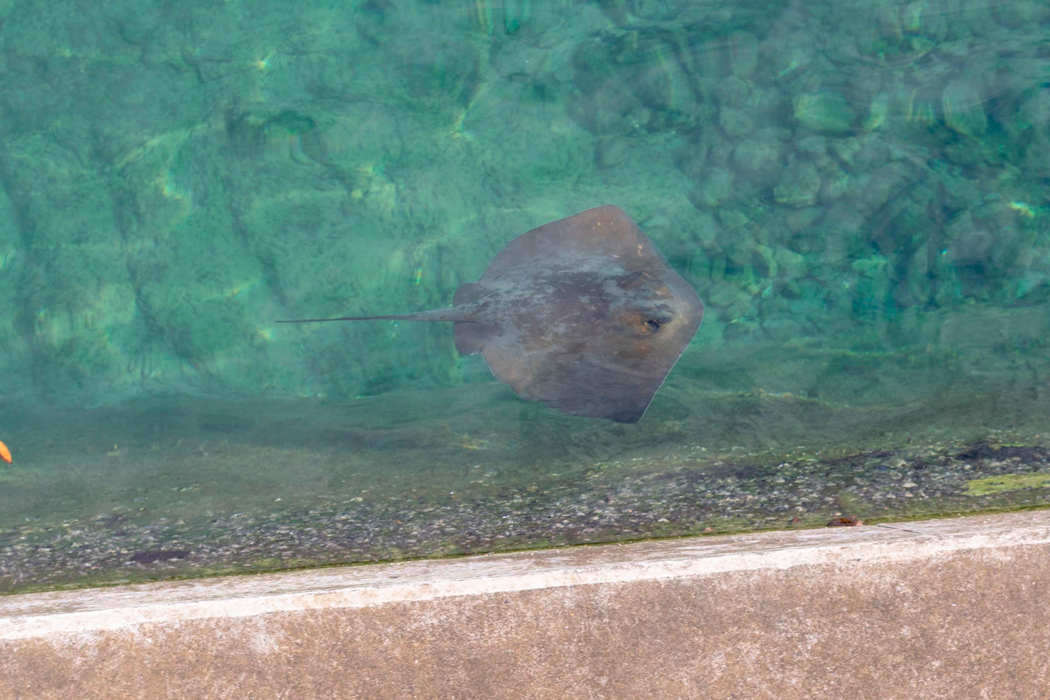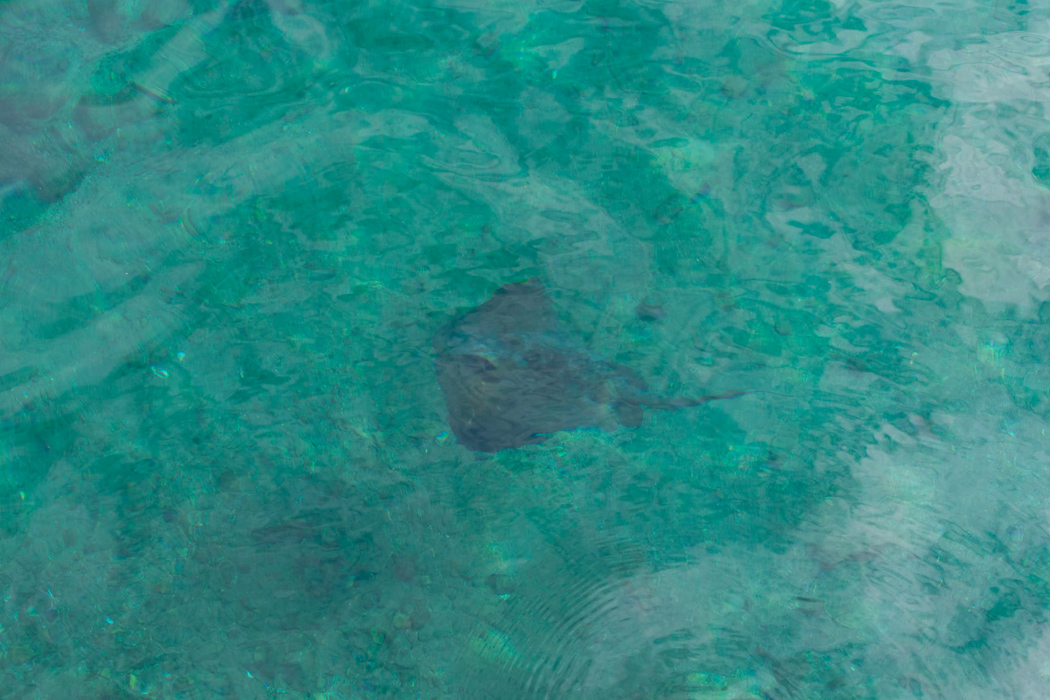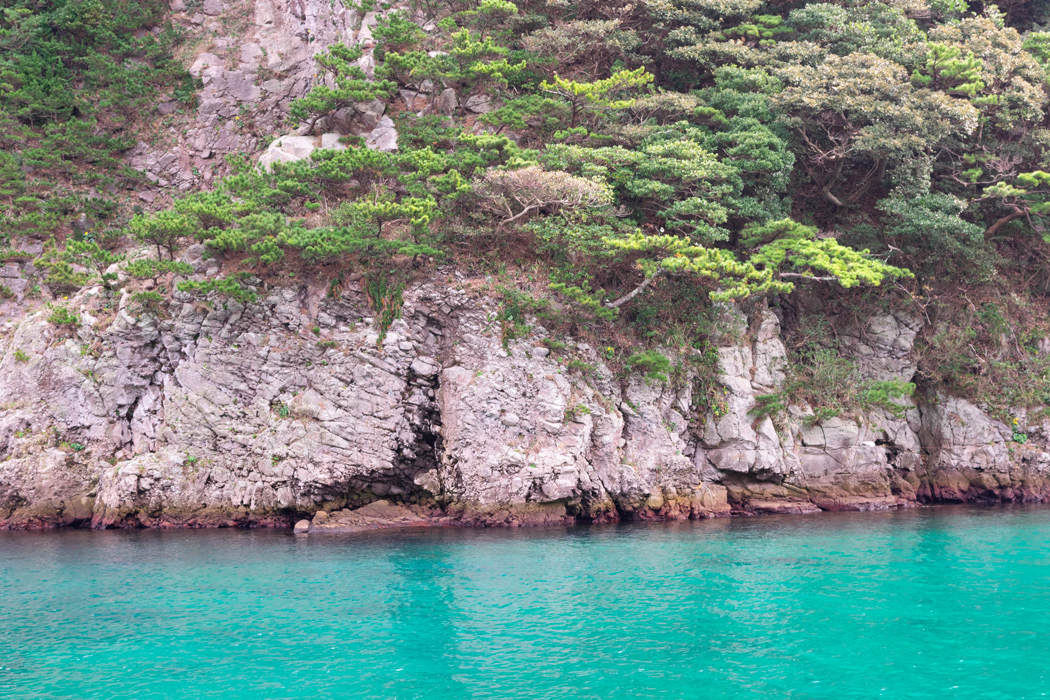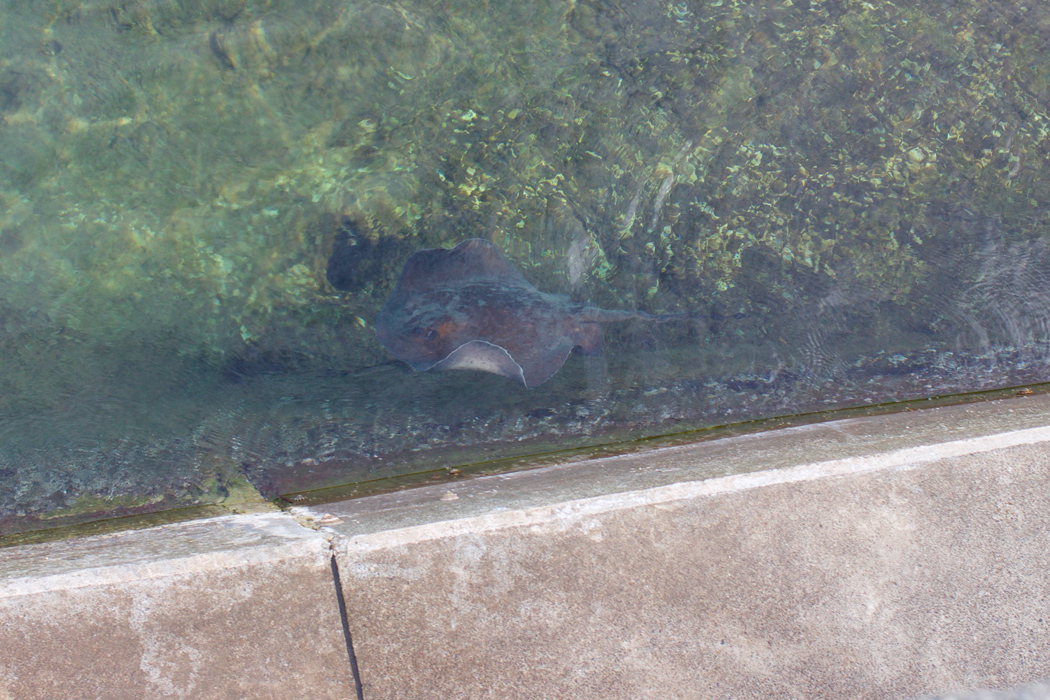
---
Named because it was found in the Izu Peninsula.
| Scientific name | Dasyatis izuensis |
| English name | --- |
| Japanese name | 伊豆姫鱏 |
| Classification | Chondrichthyes |
| Classification details | Myliobatiformes Dasyatidae |
| Full length | 90cm |
| Distribution | Pacific coast south of the Boso Peninsula |
Characteristics
A species of stingray with poisonous spines on its tail. It resembles a stingray but can be distinguished by its gray belly margin. It was difficult to distinguish the individual in the photo from a stingray, but I was able to identify it as a zuhimeray because its abdomen was slightly turned up. In addition to the abdomen, it can be distinguished by the color around the eyes and the length of the tail, but it is difficult at first glance.
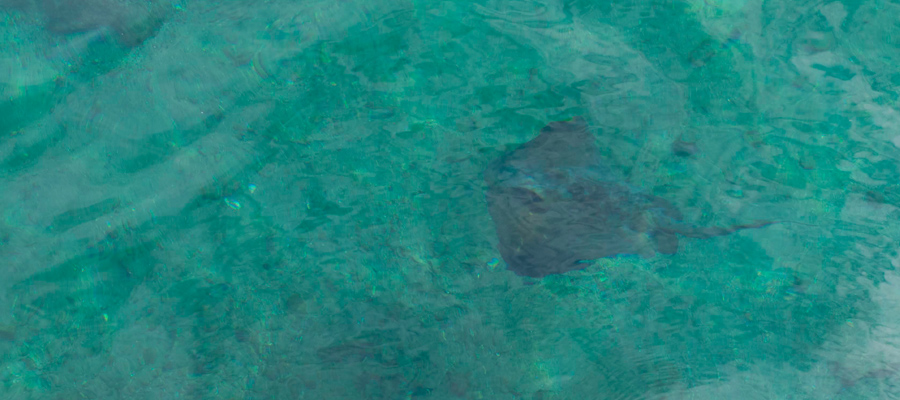
Ecology
Inhabits sandy bottoms in coastal areas. It usually burrows in the sand, and when swimming, it waves its pectoral fins and swims slowly. They are carnivorous and prey on seafloor creatures such as mollusks and cephalopods. Breeds in shallow waters during the summer. Sharks are eaten by natural enemies.
It has a poisonous stinger on its tail that can sting you if you step on it.
Habitat
I found it at the breakwater of Nobushi Port in Shikinejima. It was swimming slowly back and forth along the breakwater. A few other specimens were also found. I was able to take a picture of it coming up close to the surface of the water, but it immediately dived to the bottom of the sea.
Pictures
Introducing a picture of ---.

Picture book
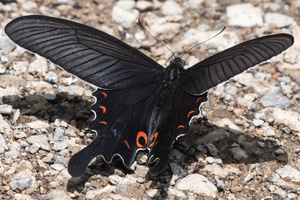
The Long Tail Spangle
It is characterized by thin black wings and a red patch on the hind wings.......ead more.
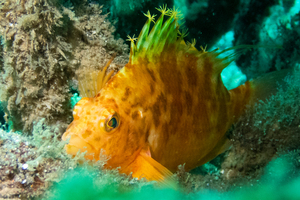
Yellow hawkfish
The tip of the dorsal fin spine is open.......ead more.
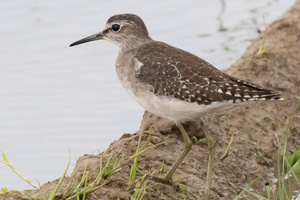
Wood Sandpiper
Beautiful mottled pattern on wings.......ead more.

fish mint
Has a peculiar odor but is not "poisonous".......ead more.
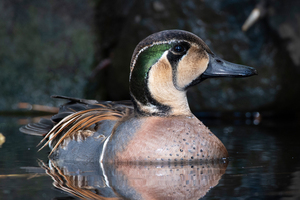
Balkal Teal
A face with a black, green, and brown Tomoe-shaped pattern......ead more.
